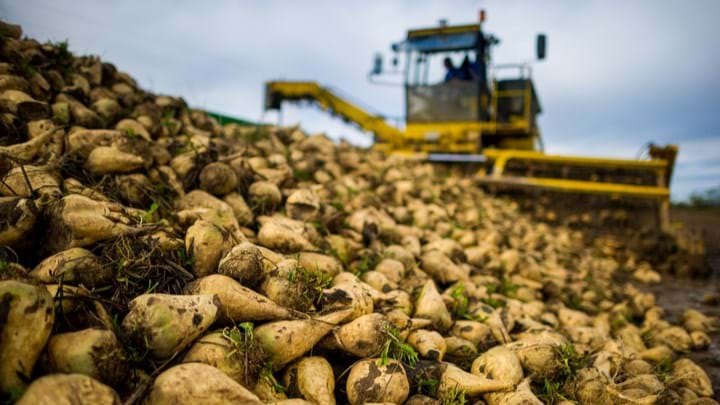Sugar beet could kickstart Scottish bioeconomy

GROWING sugar beet in Scotland and processing it at a new biorefinery could help the country become self-sufficient in bioethanol production, creating new jobs and safeguarding existing ones in the chemicals sectors, according to a new economic analysis.
The report from the Industrial Biotechnology Innovation Centre and Scottish Enterprise follows crop trials conducted in 2020. The analysis finds that Scotland could grow enough sugar beet as a rotation crop to feed a profitable plant that could produce the 170m L of bioethanol needed to meet its own demands. In September, the UK Government doubled the proportion of ethanol required in UK petrol to 10%. It is estimated that the UK requires 1.7bn L of ethanol for blending but only has three bioethanol plants with a combined production capacity of 890m L, and all are based in England. A new plant would reduce reliance on ethanol imports from Europe and help save 280,000 t/y of CO2.
The economic study recommends growing the sugar beet centrally on the east coast of Scotland rather than over a wide area, and says that bioethanol production is most cost-effective if done at a single large site at scale. It found that the optimal locations for a new biorefinery are either in Dundee due to its proximity to the agricultural land, or the industrial hub of Grangemouth for its access to existing utilities, water treatment, chemical plants and a major port.
Growing sugar beet on a large scale would create new jobs through opportunities for agriculture, and provide a sugar-based feedstock to help accelerate the growth of Scotland’s industrial biotechnology sector while reducing the use of fossil feedstocks by displacing traditional chemical production routes. This includes producing dehydrating ethanol to produce ethylene, the world’s most produced chemical, and its derivatives; as well as providing a bio-based feedstock for production of other chemicals used in pharmaceuticals, surfactants, solvents and food additives.
Mark Bustard, CEO of IBioIC, said: “Bio-based production is the future of manufacturing in a net-zero Scotland and sugar beet is at the core of Scotland’s opportunity to develop a sustainable feedstock and compete on the global stage. Not only could it safeguard many of the thousands of jobs in our existing chemicals sector, but it could create hundreds more through new opportunities and manufacturing methods.”
Scotland’s Trade Minister Ivan McKee said: “I welcome this report, which will contribute to the evidence-based decisions we will make in our transition to net zero, while protecting our natural environment and its biodiversity.”
The report recommends farmers form a co-operative that would work as a single point of contact with a refiner to bolster confidence, and simplify operations and pricing negotiations. The report notes that creating smaller regional processing units may be possible in the future but the technology is still at an early stage of development.
Linda Hanna, Managing Director at Scottish Enterprise, said: “Not only can sugar beet provide a credible, sustainable, low carbon alternative to fossil carbon for manufacturing, it can also accelerate the growth of Scotland’s biotechnology sector. The private sector is critical to achieving this growth by getting behind sugar beet and its potential for a wide range of bio-based products. Scottish Enterprise stands ready and is keen to work with pioneers in agriculture, manufacturing, and biotechnology as they consider how they collaborate and innovate to take opportunities to market.”
Recent Editions
Catch up on the latest news, views and jobs from The Chemical Engineer. Below are the four latest issues. View a wider selection of the archive from within the Magazine section of this site.




